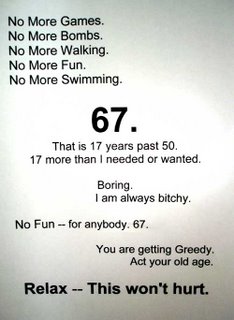
This review will be one of the shortest, because if you've seen it, you know why it's here. If you haven't, the only thing I can say is, "FUCKING WATCH IT." There isn't one Tarantino movie I wouldn't watch ad infinitum, and this would seem to be his best (although if Glorious Bastards is made, it might give it a run for it's money). The actors click. The story is brillantly structured. The direction is amazing. And there are just so many small, nice touches, such as Butch keying Vincent's car. Genius all around.
The greatest compliment a movie can receive is that it stands the test of time. For those of you about my age, did you realize that this movie was made in 1994? I was in eighth grade when I saw this motherfucker. I thought it was great then, and today it seems like cinematic gold. And so many movies ripped it off. For those film buffs out there, just think of the movies you saw, good or bad, which borrowed some aspect of this pic. They're too numerous to even begin a list.
And what makes it really great is that he never went back to the well. Tarantino could have made Parts II, III, IV...L, and he's so talented they all probably would have been good. But Tarantino realized what he had captured and was smart of enough to let it be. So, let me add my voice to one of the millions already and declare, "Bravo, Quentin. You made a masterpiece... and thanks for not thinking it was the only thing you could do."
On a side note, a close friend of mine and I had a great discussion about Cho and the topic of my last article. She certainly got me to reconsider some things. Not about whether NBC should have shown it, but how it was presented overall. So, look for a follow-up post after her terrific insight.

